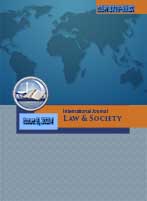The historical genesis of Moscow technologies for hiding political crimes
Keywords:
Moscow aggression,political crime, victim, «hybrid war», misinformation, denial of guilt, transfer of guiltAbstract
The article delves into the historical genesis of methods used to conceal political crimes in the practices of the Moscow state. Throughout the existence of both the Soviet Union and its contemporary successor, the Moscow state, political crimes were systematically employed. Techniques such as denying responsibility and disseminating disinformation through extensive networks of Kremlin-controlled media and the influence network of Moscow’s intelligence services were utilized. Together, these elements constitute the doctrine of the so-called «Russian hybrid warfare» or «hybrid war».
An analysis of the assassinations of leaders in the Ukrainian national liberation movement, including S. Petlyura, E. Konovalets, S. Bandera and others, who were internal opponents of the Kremlin regime, along with public and political figures from other states, reveals that the mechanism for concealing these crimes serves multiple purposes: eliminating the targeted victim, diverting suspicion from the actual instigator and perpetrator, and shifting blame onto the victim, their associates, allies, or opponents. Consequently, this provokes instability and division within the victim’s political organization and exacerbates relations with foreign partners and opponents.
The Kremlin regime, by provoking wars in other countries, participating in them, or directly aggressing against neighboring states and committing mass war crimes, consistently accompanies such actions with a broad disinformation campaign, shifting blame onto the victim of the attack or their partners. After committing acts of unprovoked aggression against Ukraine, it accused the governments of the state and the United States and NATO of allegedly planning an attack on the Moscow state from Ukrainian territory. Committing a series of mass crimes during this aggression, it similarly shifts blame onto Ukraine and its partners.
The article convincingly argues that the systemic use of crimes as an instrument of Moscow state policy, and their concealment through denial of guilt and widespread disinformation, has a long historical genesis and imperial continuity from the Soviet state.


